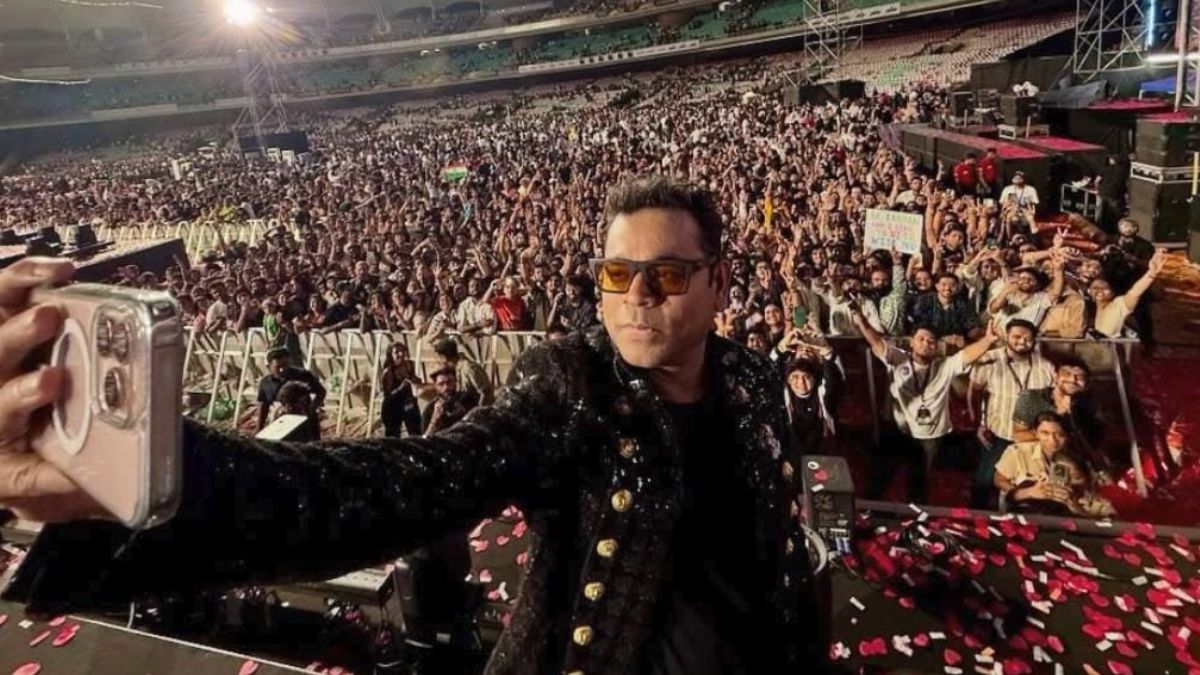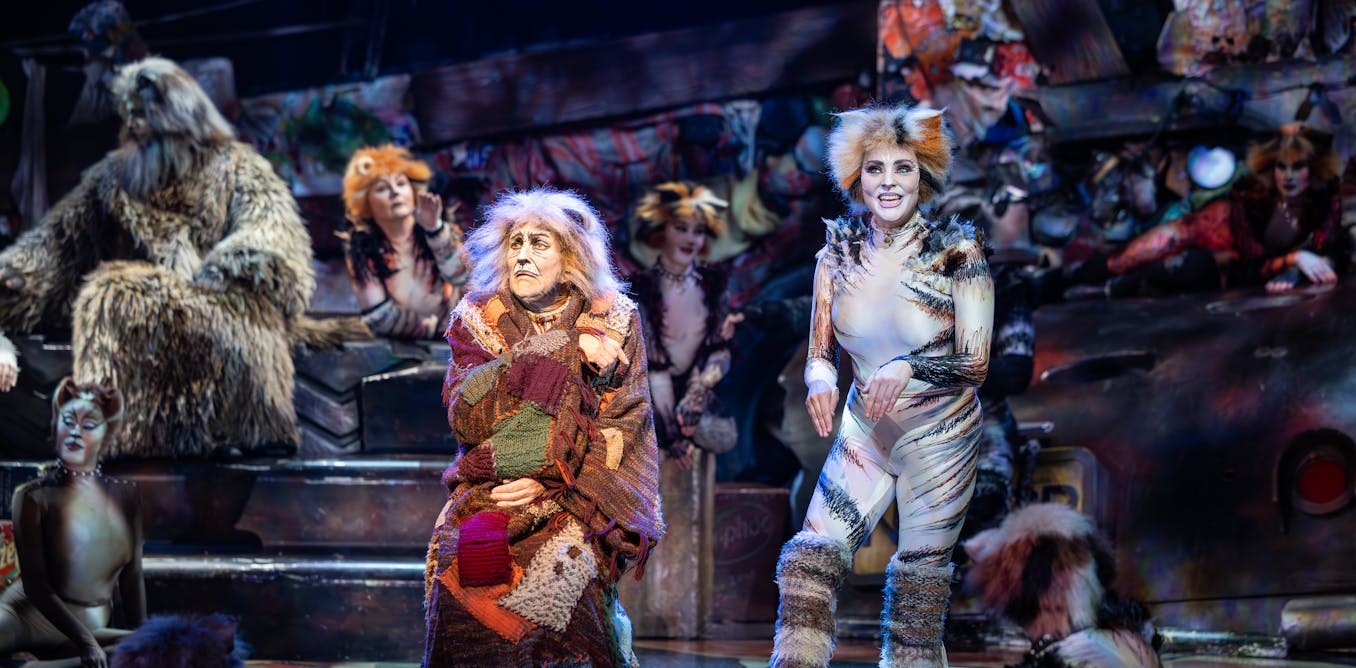Bombay Dreams Turns 23: AR Rahman's Throwback Interview On Andrew Lloyd Webber's Musical

It came out of the blue. I always thought I’d do film composition and maybe non-film albums, but never a play. I didn’t know the importance of a musical until I watched a few after I was signed for Bombay Dreams. That‘s when it hit me that there’s a lot I can do in the area. Bombay Dreams has been a rewarding experience. The critics haven’t been too kind to the play. But they liked music. All the flak has now faded. I think Bombay Dreams has a charm of its own. Farha Khan’s contribution is immense. Nowadays when I speak to Andrew he gives me a scare. He keeps telling me I’ve established a base in London.
It’s a bit confusing right now. There are unlimited opportunities there. But my roots are in Chennai. I guess life has a way of working itself out. I don’t have to strain myself to exercise options. Initially, when Bombay Dreams was conceived I was just required to do two pieces. Andrew Webber heard some of the stuff and decided on his requirements. Slowly a whole new score came up. After jamming with Shekhar Kapur and Webber we came up with a storyline. Then Meera Sayal took over and wrote the script. For 6-8 months there was a lull—I almost felt Bombay Dreams would remain a dream—before it suddenly took off again.
Bombay Dreams has made a very strong impact in England. When I step out of a flight in London a lot of Asians tell me, “We were like thumbs-down before Bombay Dreams. Now we’re thumbs-up.” I don’t know what they mean
Oh, that’s good(laughs). The whole music industry is suffering a slump. Sure my music is selling. But when the whole business is on the blink you can’t prosper. On the other hand, a lot is happening in the West, including soundtrack offers from Hollywood. It’s a tough decision to take. I can’t chuck everything here and leave. For me, it was a dream ten years ago to study music and work abroad. It’s a different high to see your work being appreciated abroad. But more important is the work I’ve done at home in the last ten years because that’s what’s got me Western attention. I can’t leave my home behind. But at the same time, I must move on.
There are some, including a crossover movie for Columbia Pictures. I got two film offers from major directors in Hollywood which didn’t excite me. I also have an offer to do a philharmonic album. I’m toying with various ideas. But I agree that popular film music in India has reached a dead end. That’s what happens when people begin to play safe. Art is endless. It’s like a bottomless ocean. Even a semblance of change can make a world of difference.
If you have durable melodies and good poetry people do respond to it, even if not immediately. When I see the so-called difficult songs being sung effortlessly by children on television’s talent-scouting contest Sa Re Ga Ma I realise the most hummable songs are those that touch on life. Composers take the easy way out. They make tunes that hit the charts for a month and then exit, therefore nothing memorable happens. I wonder why an album like The Legend Of Bhagat Singh didn’t work. I worked hard on it. And then nothing happened! I had to invent new tunes for established classics like Mera rang de basanti chola. Tragically if a movie doesn’t do well everything including the music falls by the wayside. I think people got put off by the element of terrorism that underlined the overt patriotism in Bhagat Singh’s story.
He wants to do an opera with me, though I don’t know what he has in mind. I’ll soon know. Then Shekhar Kapur wants to do a film called Paani. It’s a futuristic film set in Mumbai. Let’s see if it happens. Shekhar has started working on the script with the writer of that Jim Carrey film The Truman Show (Pani never got made).
You may also like...
WWE Legends Shaken by Bizarre Death Rumors and Crash Claims

Vince McMahon was involved in a serious three-car crash in Connecticut, a collision that coincidentally occurred around ...
Luke Littler's Explosive Personal Struggles and Shock Retirement Talk

Luke Littler secured his first World Series title of the year at the Australian Darts Masters, defeating Mike De Decker ...
Weapons Film Sparks Debate: Josh Brolin Calls it a Bold Antidote to 'Boring' Streaming Content!

Explore three diverse films: "Weapons," a chilling horror-thriller about mysterious disappearances; "Freakier Friday," a...
Naked Gun Remake Ignites Screen: Liam Neeson & Pamela Anderson's Explosive Chemistry Steals the Show!

This article delves into a trio of recent film releases, including Liam Neeson's surprising comedic turn in "The Naked G...
Ozzy's Eternal Legacy: Prince of Darkness Trademark & Family's Heartfelt Goodbye

Heavy metal icon Ozzy Osbourne, the 'Prince of Darkness,' passed away on July 22, just weeks after filing to trademark h...
Oasis Wembley Gig Chaos: Security Breach & Star Sightings

Oasis' reunion concerts at Wembley Stadium were a mix of celebrity attendance, a fan's tragic death, and a major securit...
Comedian Pete Davidson's Dream Comes True: Expecting Baby with Elsie Hewitt

Comedian Pete Davidson and model Elsie Hewitt are expecting their first child, a joyful announcement made by Hewitt on I...
Big Brother Naija 10 Rocked by First Shocking Eviction

The first eviction night of Big Brother Naija 10/10 brought intense suspense and saw host Ebuka Obi-Uchendu debut an out...




